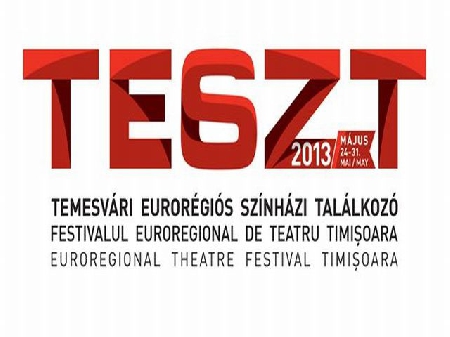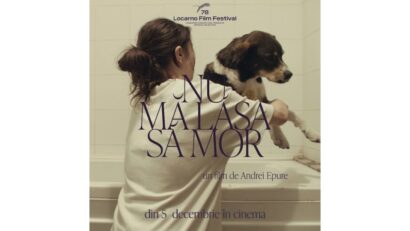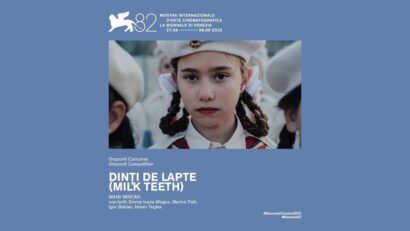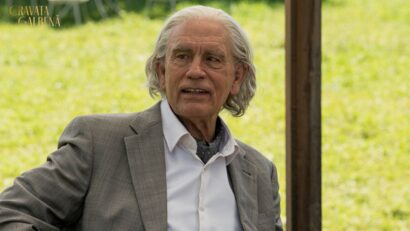Timisoara Euro-regional Theatre Festival
The Csiky Gergely Hungarian State Theatre organized a new edition of the Euro-regional Theatre Festival, TESZT.

Luana Pleşea, 17.08.2013, 01:00
The end of May was a special time for people in Timisoara, who enjoyed a special theatre event. The Csiky Gergely Hungarian State Theatre organized a new edition of the Euro-regional Theatre Festival called TESZT, also celebrating 60 years of existence for the institution.
Since its first edition in 2007, the festival has represented the multicultural character of the so-called DKMT Euroregion, demarcated by the Danube, Kriss, Mures and Tisa rivers, strengthening the ties between theatres within the region. This makes this festival unique, as Attila Balazs, director of the festival, told us:
“Every year, we identify trends, and this defines the main axis of the festival, adding on top other shows and auxiliary programs. This year, we had the show ‘Times of Peace’, staged by Hajdu Szabolcs, widely known in Romania as a film director. He directed Biblioteque Pascal, for instance, featuring Razvan Vasilescu and Oana Pellea, which was Hungary’s proposal for the Oscars for Best Foreign Film. In the show staged at our theatre, the director is also the scriptwriter, and acts on stage as well. It was our intention to bring in such shows, and we brought in a show from Novi Sad, staged by Kokan Mladenovich, where you can clearly see that the director re-wrote the second act of the Marriage of Figaro. Chekhov’s The Seagull generated a 6-hour show in which the theme is developed in several directions.”
In fact, these were some of the shows the most highly appreciated by the public this year. Here is theatre critic Katalin Kolo:
“I loved the show staged by the Serb National Theatre of Novi Sad, ‘The Seagull’. It was a very good experience for me, in professional terms. Although it was 8 hours long, with three 30-minute breaks, it was a theatre workshop absolutely worth attending. I also enjoyed the show of the Hungarian Theatre from Novi Sad, called ‘Opera Ultima’. This is a satire, blending Mozart’s opera ‘The Marriage of Figaro’ and the prose of Beaumarchais. The play staged by the Hungarian Theatre in Timisoara, ‘Gardenia’, was also very well done, and I simply loved the acting of the leading actresses.”
“Gardenia” is the story of a Polish family made up of four women from four successive generations, portrayed on stage in Timisoara by Andrea Tokai, Emilia Borbely, Rita Lorincz and Monika Tar. Andrea Tokai had a very complex role to play, that of a daughter, lover, wife, mother, grandmother and great grandmother:
“When I first read the text I thought it was phenomenal and I fell in love with it and with the character I had to portray. Of course, they’re not heroes, they’re not necessarily positive characters. They have to face all kind of problems such as poverty, alcoholism and the destiny of an abandoned woman, of a deceived woman. But it has depth, it is complex and describes a life that is not easy to summarize. It’s different…The fact that it was written by a very young author might explain it.”
Another show with a theme similar to that of the TESZT festival is “The City of Demons — Pass-port Subotica” directed by Urban Andras on the stage of the “Kosztolanyi Dezso Theatre in Subotica. The play is part of a trilogy about cohabitation in a multicultural area and about accepting each other.
The theatres that take part in the Timisoara Euro-regional Theatre Festival every year have in time formed a community. The festival’s director, Attila Balazs:
“What interests us is the direction our theatre is taking and the partners we have along the way. We want to strengthen ties with other theatres and communicate in a more direct manner. It’s no longer something unusual for an actor from Timisoara to perform on the stage of another theatre or for foreign actors to perform here. Directors are also invited to direct plays in theatres in various cities. So these things are already happening. A good plan would be for several theatre companies to get involved in the staging of the same play. I think it would be great for theatres in Timisoara, Subotica, Novi Sad and Szeged to stage together, under the guidance of a renowned director, a grandiose show. It’s important for it to be an artistic act, based on an idea formulated together. When we gather together we start making plans for the future, many of which eventually turn into reality.”






























